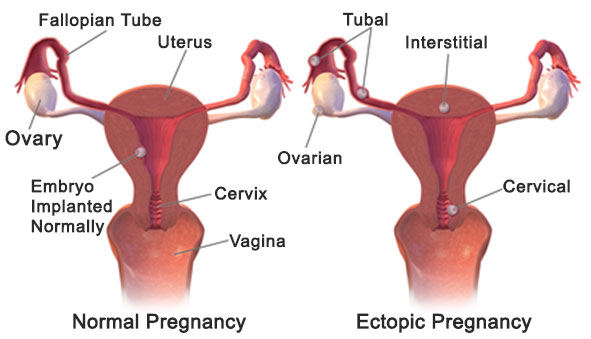

Pregnancy begins with a fertilized egg. Normally, the fertilized egg attaches to the lining of the uterus.
An ectopic pregnancy occurs when a fertilized egg (oocyte) implants and grows outside the main cavity of the uterus. An ectopic pregnancy most often occurs in a fallopian tube, which carries eggs from the ovaries to the uterus. This type of ectopic pregnancy is called a tubal pregnancy.
Sometimes, an ectopic pregnancy occurs in other areas of the body, such as the ovary, abdominal cavity or the lower part of the uterus (cervix), which connects to the vagina.

Nausea and breast soreness are common symptoms in both ectopic and uterine pregnancies. The following symptoms are more common in an ectopic pregnancy and can indicate a medical emergency:
The cause of an ectopic pregnancy isn’t always clear. In some cases, the following conditions have been linked with an ectopic pregnancy:
All sexually active women are at some risk for an ectopic pregnancy. Risk factors increase with any of the following:

Seek emergency medical help if you have any signs or symptoms of an ectopic pregnancy, including:
Can be manage medically and surgically. Your doctor will decide the treatment plan.
+91 81005 85462
54.BR.B. G.T. Road,
P.O. - Bhadrakali,
PS- Uttarpara,
Dist.- Hooghly,
Pin-712232